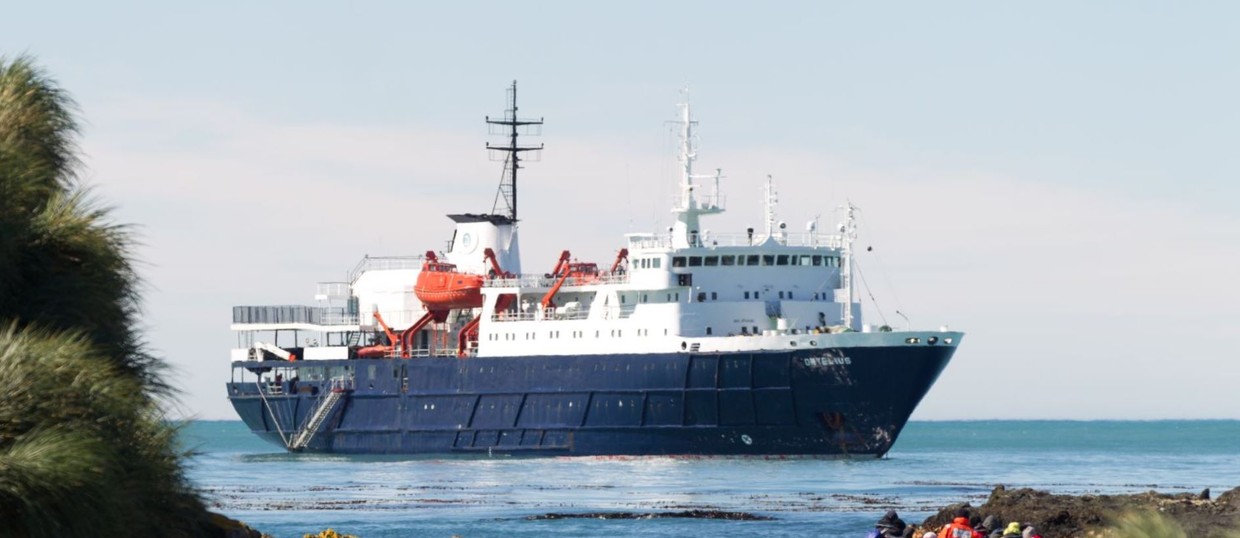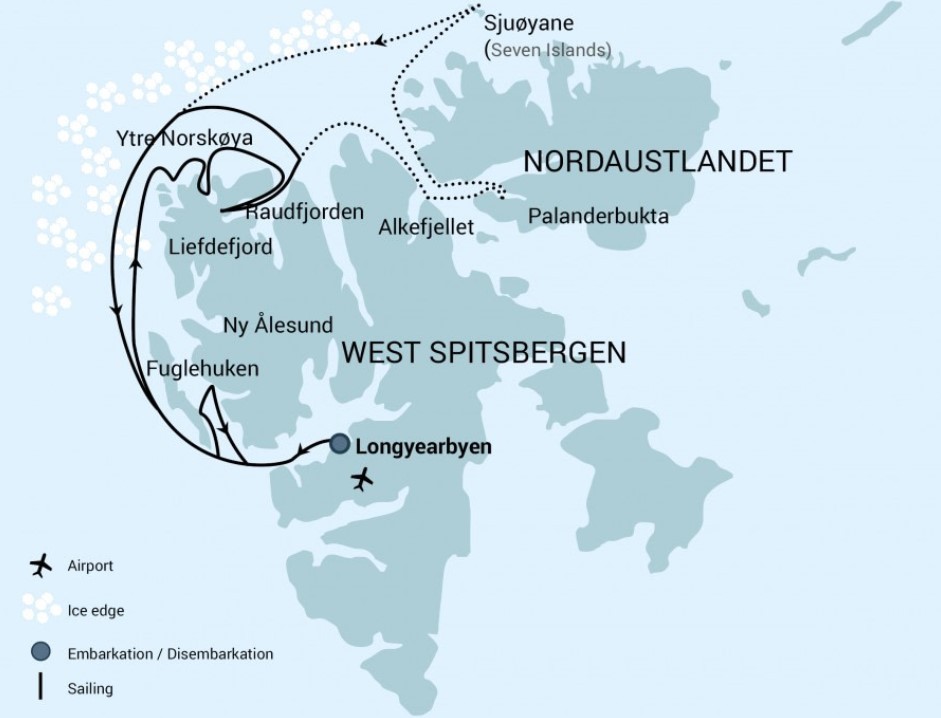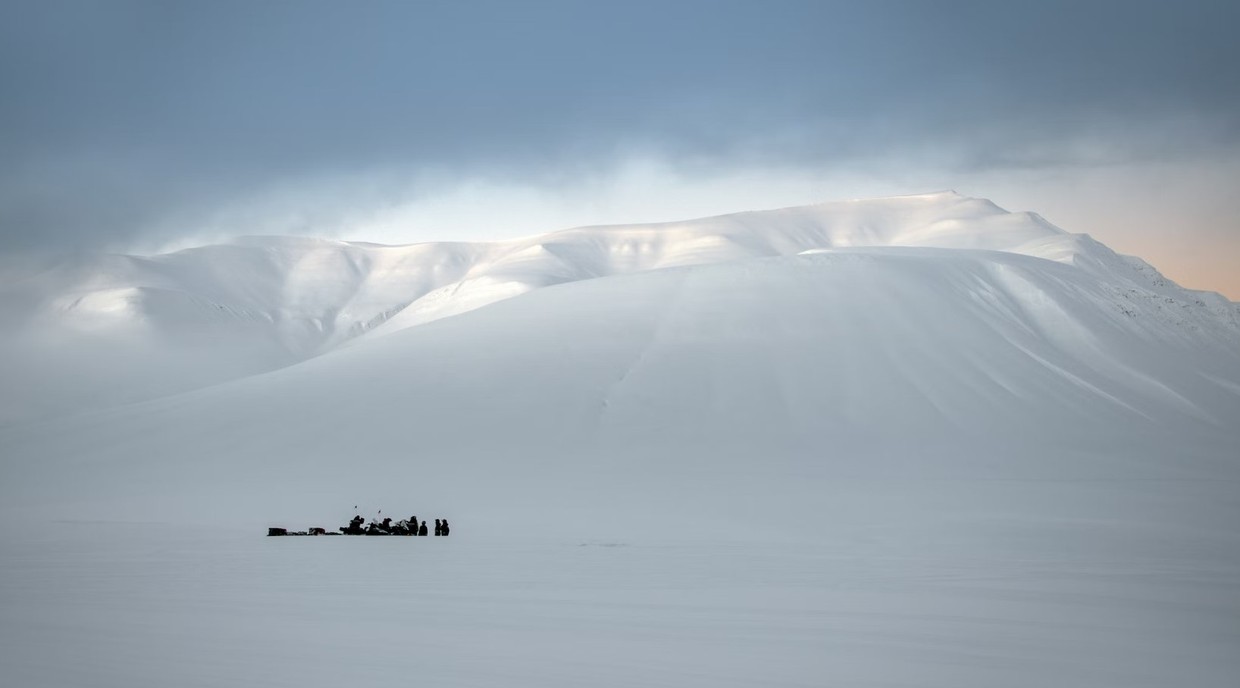from$ 6294 AUD
Note: Current p/p indicative rate. Final price may change due to currency fluctuations.
Ortelius
Longyearbyen to Longyearbyen
Overview
Start your North Spitsbergen cruise with a trek around historic Longyearbyen, then join our expedition to the north of the island to take in the fantastically beautiful landscapes, the thousands of seabirds, and of course the star of the show, the polar bear. Birding: - We will have at least one dedicated expedition guide in our team who will share their expert knowledge about bird species and who will be available to help you identify, photograph on deck and learn more about the birds that we see. In addition to outdoor sessions, our guide will focus on species and related information on the birds of the Arctic in re-caps and lectures onboard. 2023 summer solstice: midnight sun, and 24-hour day The midnight sun is a phenomenon that occurs during the Arctic summer, when the sun is visible for a full 24 hours in fair weather. The 2023 summer solstice in Longyearbyen falls on Tuesday, 21 June, at 16:57 pm. The term solstice (Latin solstitium) means “sun-stopping” and describes the point on the horizon at which the sun appears to rise and set, stopping and reversing directions after this day. On the solstice, the sun does not rise precisely in the east but rather north of east, then later sets to the north of west, making the sun visible for a longer period of time. It will not be until late August that the sun fully goes down again, and then only for a few minutes.Join us in experiencing this fascinating phenomenon during this voyage through the Arctic wilderness of Svalbard.
Departures
Cruise Itinerary
You touch down in Longyearbyen, the administrative center of Spitsbergen, the largest island of the Svalbard archipelago. Enjoy strolling around this former mining town, whose parish church and Svalbard Museum make for fascinating attractions. Though the countryside appears stark, more than a hundred species of plant have been recorded in it. In the early evening the ship sails out of Isfjorden, where you might spot the first minke whale of your voyage.
Sailing to Raudfjorden, on the north coast of Spitsbergen, you take in an expansive fjord spilling with glaciers – and maybe even visited by ringed and bearded seals. The cliffs and shoreline of this fjord also support thriving seabird colonies, rich vegetation, and the possibility of polar bears.
Depending on the weather, you could sail into Liefdefjorden and cruise within sight of the 5-kilometer-long (3.1 miles) face of the precipitous Monaco Glacier. The waters in front of this glacier are a favorite feeding spot for thousands of kittiwakes, and the base of the ice is a popular polar bear hunting ground. If ice conditions prevent sailing here early in the season, an alternate route along the west coast of Spitsbergen can be implemented.
Today you sail into Hinlopen Strait, home to bearded seals, ringed seals, and polar bears. At the entrance there is even the possibility to spot blue whales. After cruising among the ice floes of Lomfjordshalvøya in the Zodiacs, you can view the bird cliffs of Alkefjellet with their thousands of Brünnich’s guillemots. On the east side of Hinlopen Strait, you may attempt a landing on Nordaustlandet. Here reindeer, pink-footed geese, and walruses are likely sights. You can take an alternate route if ice prevents entry into Hinlopen.
The northernmost point of your voyage may be north of Nordaustlandet, in the Seven Islands. Here you reach 80° north, just 870 km (540 miles) from the geographic North Pole. Polar bears inhabit this region, so the ship may park for several hours among the pack ice before wheeling around west again.
While retracing your route west, keep watch for polar bears and elusive Greenland (bowhead) whales. About 40 nautical miles west of Spitsbergen, you sail the edge of the continental shelf. Here fin whales forage during the summer in the upwelling zones (where cold, nutrient-rich water wells up from below the sea’s surface) that run along the Spitsbergen banks. At the mouth of Kongsfjorden, you have a good chance of sighting minke whales.
Walruses sometimes haul out in Forlandsundet, your next stop. Alternatively, you might sail into St. Johns Fjord or south to the mouth of Isfjorden, landing at Alkhornet. Seabirds nest on these cliffs, Arctic foxes search below for fallen eggs and chicks, and reindeer graze the sparse vegetation. You arrive in Longyearbyen later at night.
Every adventure, no matter how grand, must eventually come to an end. You disembark in Longyearbyen, taking home memories that will accompany you wherever your next adventure lies.
Itineraries are subject to change.
Ortelius

Vessel Type: Expediton Length: 91m Passenger Capacity: 108-123 Built / Refurbished : 1989 / 2015 The vessel has the highest ice-class notation (UL1, equivalent to 1A) and is therefor suitable to navigate in solid one-year sea ice as well as loose multi-year pack ice. Ortelius can accommodate up to 116-123 passengers (108 passengers as of season Arctic 2020) and has an abundance of open-deck spaces. It is manned by 22 highly experienced nautical crew members, 19 hotel staff, eight expedition specialists (one expedition leader, one assistant, and six lecturer-guides), and one doctor. Though our voyages are primarily meant to offer our passengers an exploratory wildlife program with as much time ashore as possible, Ortelius offers all the comforts of a standard hotel ― along with a bar and lecture room. Flexibility assures maximum wildlife opportunities. As such, Ortelius carries 10 Zodiacs with 60hp Yamaha engines.
Highlights
• Zodiac Cruising & Shore Program • Shore-Based Walking • Sjuøyane • Arctic Fox • Kittiwake • Polar Bear • Walrus • Svalbard reindeer
Map



